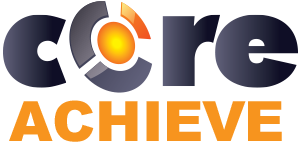Leveraging LMS Data for Performance Improvement: Unveiling the Power of Learning Analytics
July, 05 2023
Other posts:
Enhancing Team Dynamics for Effective Group Decision-Making with LMS Integration
Organizations increasingly rely on collaborative efforts to solve complex problems, innovate, and adapt to change, but how do we ensure that collaboration is happening.
Maximizing Small Business Potential with Training Technology
Training technologies can push small businesses ahead of their competitors, but what are the factors that go into choosing the right technology?
Unlocking Employee Potential: The Transformative Benefits of an Interactive Learning Management System (LMS)
Interactive training allows for unlocking employee potential, but how is it done?
Building a Robust Sales Pipeline with Training
Every organization wants a streamlined sales pipeline, but building one requires a series of interlocking activities with one of the most important being training.
Strategies for Adapting In-Person Training to Online Platforms
Online training is one of the most flexible ways of delivering training across organizations, but how do you even begin to adapt in-person training into online?
Data is one of the most important resources that an organization can collect. However, the data in of itself has no value--it depends on how it is used.
Data has become one of the most important resources available to any organization, not because there is some kind of intrinsic value, but rather, data’s value stems from the decisions that are made using it. For example, an area where data can make a significant impact is in learning and development. By leveraging Learning Management System (LMS) data, organizations can gain a deeper understanding of learner behavior, track progress, and identify areas for improvement.
As was discussed earlier, data is a start not the end, just collecting data from an LMS will not have value for your organization. The value comes from how an organization uses that data for decision-making.
Setting the Foundation: Collecting Relevant Data
The first step in leveraging LMS data is to ensure that you are collecting the right information. Define the key performance indicators (KPIs) that align with your organization's learning goals and objectives. These may include completion rates, assessment scores, time spent on courses, learner engagement metrics, and more. By capturing these data points, you lay the foundation for meaningful analysis.
Analyzing Learning Patterns and Trends
Once you have the data, it's time to dive deeper and uncover patterns and trends. Learning analytics tools within the LMS can help you analyze learner behavior and identify areas of success or struggle. Are there specific courses or modules where learners tend to excel or struggle? Are there patterns in the time of day or week when learners are most engaged? Insights such as these allow you to deduce much more about your learner’s experience than it may seem, enabling you to refine the learning experience.
Identifying Skill and Knowledge Gaps
Learning analytics can provide valuable insights into skill and knowledge gaps within your organization. By analyzing assessment scores, you can identify areas where learners are consistently underperforming. This information allows you to tailor your training programs to address those gaps effectively. Whether it's developing new courses, providing additional resources, or offering targeted interventions, data-driven insights enable you to focus your efforts where they are most needed.
Personalizing Learning Experiences
LMS data empowers organizations to personalize learning experiences based on individual needs and preferences. By analyzing learner engagement metrics and progress, you can identify the most effective learning pathways for different learner profiles. This may involve recommending specific courses or resources, adapting content delivery methods, or providing targeted feedback and support. Personalized learning experiences increase learner engagement and motivation, resulting in improved performance.
Monitoring Training Effectiveness and Return on Investment (ROI)
Leveraging LMS data allows you to assess the effectiveness of your training programs and measure the return on investment (ROI). By analyzing completion rates, assessment scores, and post-training performance metrics, you can determine whether the training initiatives are achieving the desired outcomes. This insight enables you to make data-driven decisions on refining your training strategies, reallocating resources, and maximizing the impact of your learning programs.
Continuous Improvement through Data-Driven Decision-Making
LMS data is a goldmine for continuous improvement. Regularly monitor and analyze the data to identify emerging trends and make informed decisions. Actively seek feedback from learners through surveys or evaluations to gain additional insights. This feedback can be used in conjunction with the data you collect beyond the learner’s control (like assessments, times, and completion rates) to cross reference conclusions from one data set or another. Learners may develop opinions or assumptions that are unfounded and should not be acted upon face value.
Leveraging LMS data for performance improvement is a strategic approach that can transform learning and development initiatives within organizations. By collecting, analyzing, and acting upon learning analytics, organizations can gain valuable insights, identify areas for improvement, and optimize learning experiences. Embrace the power of data-driven decision-making to unlock the full potential of your LMS and drive continuous performance improvement across your organization.
The power of learning data from an LMS does not lie in the act itself, but the decisions that can be made from it. These choices are inherently recursive, one choice may lead to only a marginal increase (or decrease) in metrics, and it is the organization’s job to keep evolving their training.
Get started with CoreAchieve today for free.
Photo by Christoper Burn on Unsplash

Leave comment: